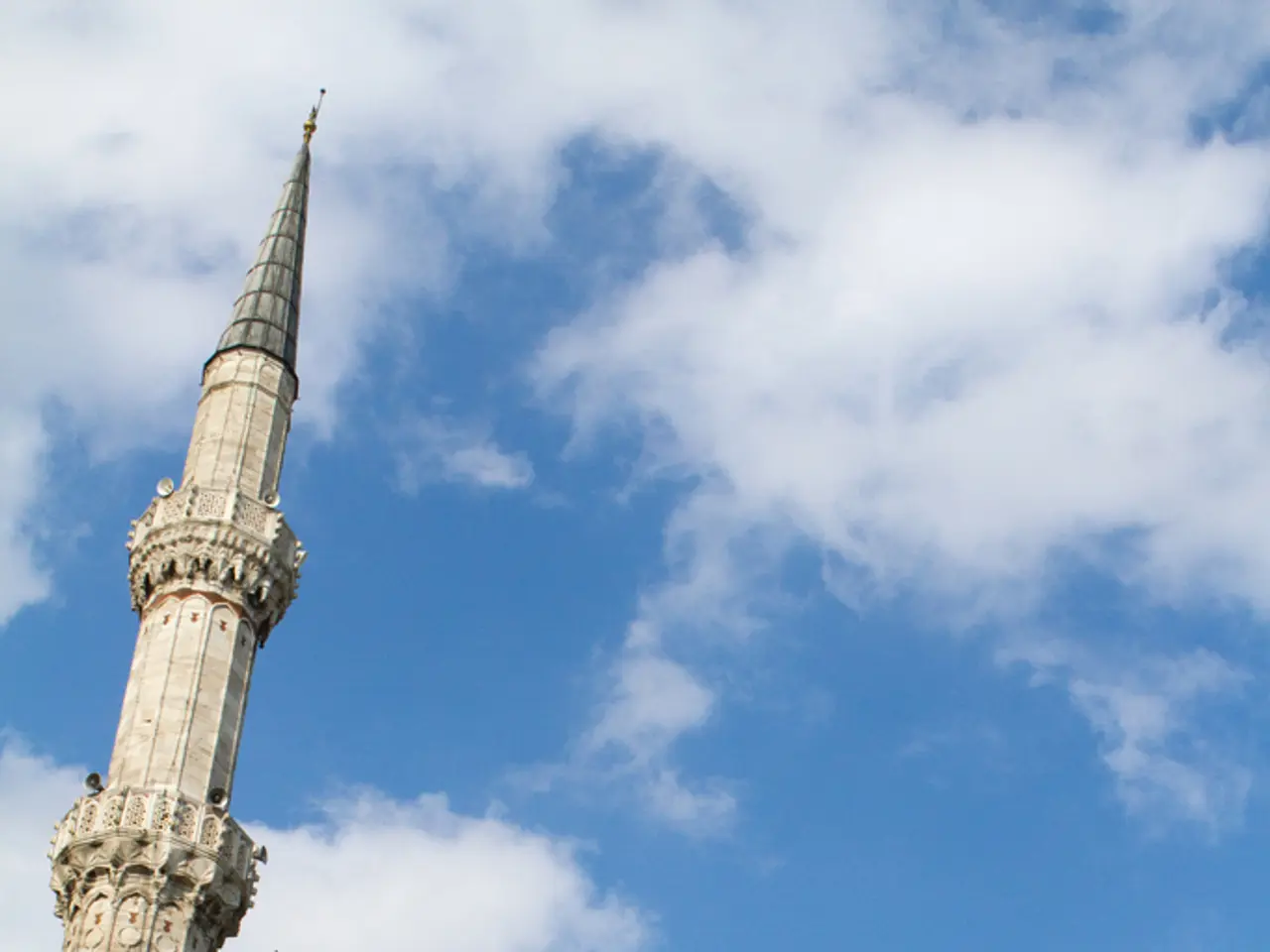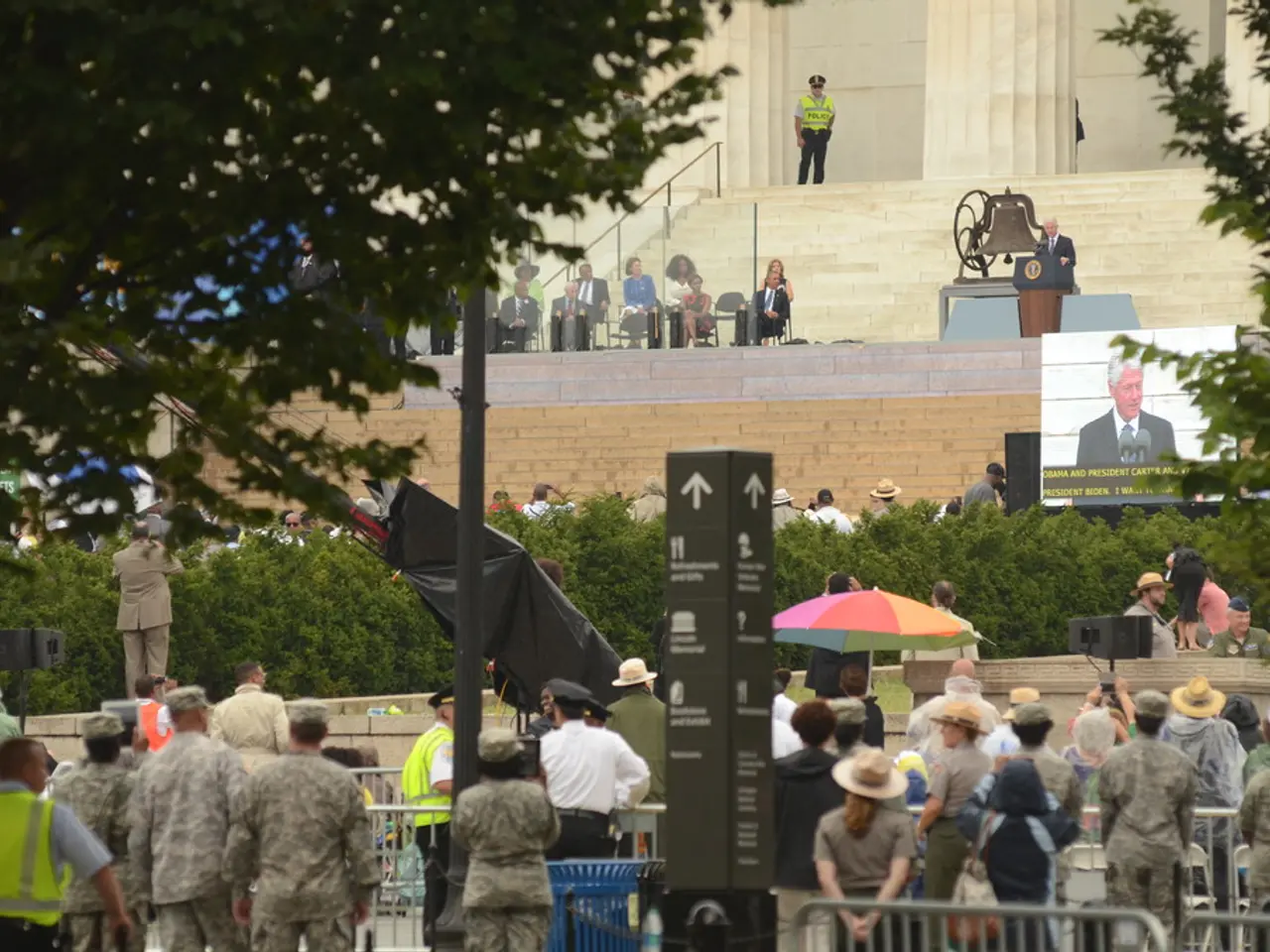Who might step up as the successor if Iran's Supreme Leader Khamenei departs?
In the wake of intensified Israeli strikes, speculations swirl about Iran's future without Ayatollah Ali Khamenei, a figure entrenched in power for over three decades. A question mark hangs heavy over the aftermath of his potential removal, stirring apprehensions of chaos and uncertainty.
European leaders, haunted by the tumultuous aftermath of the US-led invasion of Iraq and the NATO-led intervention in Libya, warn against military intervention for regime change in Iran. French President Emmanuel Macron voiced that such an approach would lead to chaos, citing the experiences in Iraq and Libya.
Regime change, according to experts, risks creating a power vacuum that could be filled by hardline elements within the Revolutionary Guards or the Iranian military. Nicole Grajewski, a fellow at the Carnegie Endowment, expressed that Israel's strikes seem more focused on regime change than non-proliferation.
Among notable opposition figures is Reza Pahlavi, the son of ousted shah Mohammad Reza Pahlavi, who has declared the Islamic republic's imminent collapse. He advocates for the restoration of the warm relationship between Iran and Israel, a move that could be termed the "Cyrus Accords." However, Pahlavi is divisive among supporters and exiles due to his nationalistic stance and ties with Israel.
Another significant organized group is the People's Mujahedin (MEK), whose leader Maryam Rajavi recently stated that Iranians desire regime overthrow. Yet, the MEK is scorned by other opposition factions and regarded with suspicion by some Iranians due to its support of Saddam Hussein during the Iran-Iraq war.
Thomas Juneau, a professor at the University of Ottawa, noted that there is no organized, democratic alternative to the Islamic Republic, should it collapse. The only alternative, he warned, is a coup d'état by the Revolutionary Guards or a change from a theocracy to a military dictatorship.
Beyond political instability, ethnic and regional dynamics within Iran could trigger further unrest. Large Kurdish, Arab, Baluch, and Turkic minorities reside alongside the Persian population. The central government's weakening could embolden these ethnic groups to seek more autonomy or even demand secession, causing potential insurgencies in restive regions.
Experts also warn of a possible power struggle involving external actors aiming to influence outcomes, potentially escalating conflicts or offering opportunities for change, depending on the successor's orientation. Regardless, the regime's robust control apparatus indicates a preparedness to manage such transitions, suggesting that while risks are high, a chaotic collapse is not assured.
Policy and legislation discussions surrounding Iran, amid speculations about its future without Ayatollah Ali Khamenei, are taking place in the context of general news and politics. European leaders, echoing similar sentiments, urge against a military approach for regime change in Iran, fearing war-and-conflicts akin to past experiences in Iraq and Libya.






